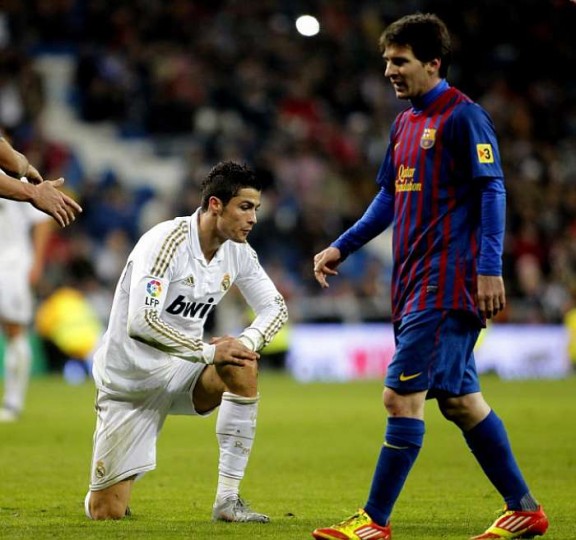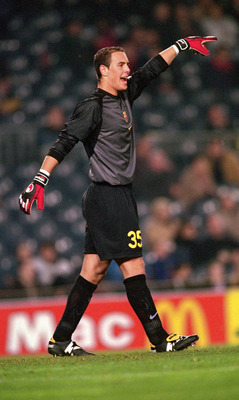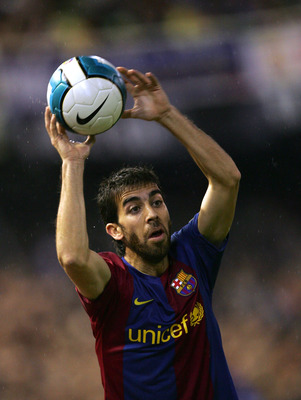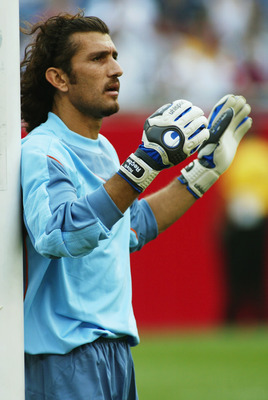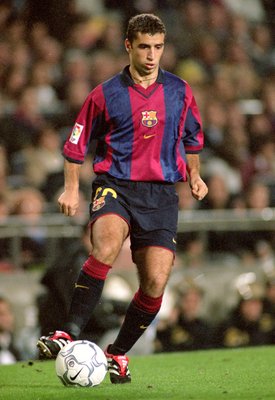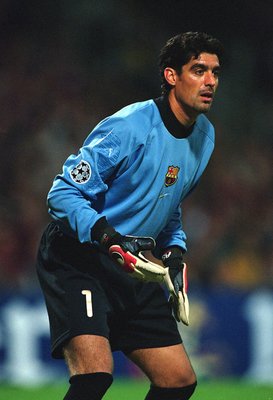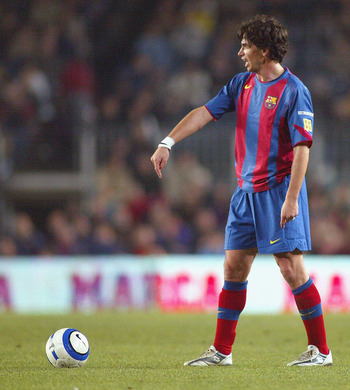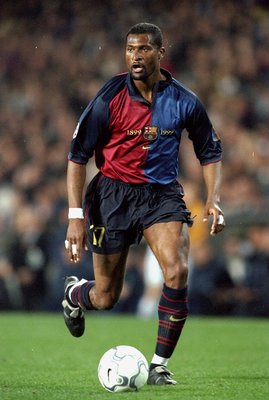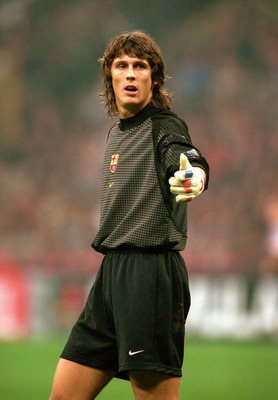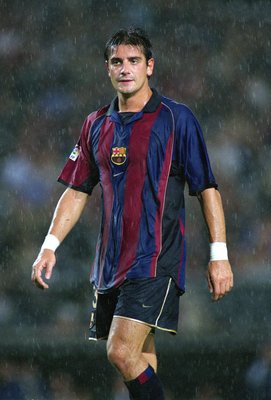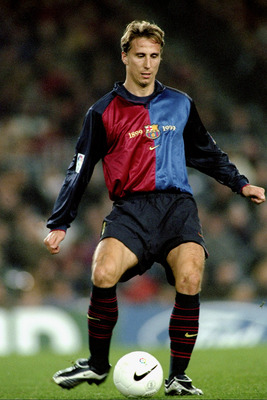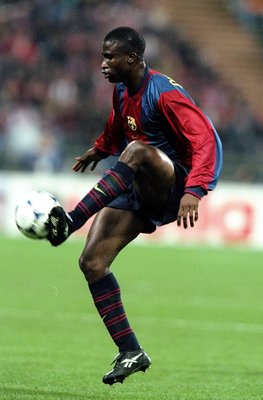In fact, there was a moment in the 2nd half, near the end, when Puyol when to the sideline and said to Pep that he was so tired and could use a substitution. Pep, from the sideline, told him he would hold until the end of the match in a very catalan expression (literally translating to "by my balls you end the match". In catalan doesn't sound so bold, mind you). So Puyol had to endure the last 10 minutes.
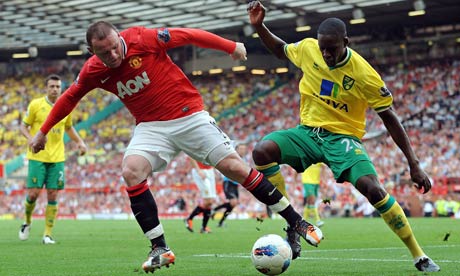 |
| Norwich impressed at Old Trafford and showed the kind of spirit that is a Premier League selling point. They lost 2-0, however. |
It's the most competitive league in the world. Anybody can beat
anybody on their day. There are no easy games in this league. The mantra
of the Premier League
apologists is well known. Every time a team from the Little Fourteen
(as nobody ever calls them) plays a team from the Big Three (it is just
three now, right?) the cliches come trotting along: in our league nobody
gives anybody anything, everything's a glorious struggle.
It's
nonsense, of course: it's obvious the Premier League is a closed shop
that can be opened only with the application of around a quarter of a
billion pounds. In England in the past decade there have been three
different champions. That's the same as Spain, Italy and Portugal,
poorer than France (four), and Germany and Russia (five). But then in
the past decade there have been Champions League winners from England,
Spain, Italy and Portugal, and not from France, Germany or Russia. It
seems fairly obvious that competitiveness is something that must be
balanced against quality: would fans prefer an exciting domestic league,
or for teams from that league to do well in continental competition?
That's
not to say that a low number of different champions is necessarily a
sign of strength or high quality. In Croatia, Dinamo Zagreb have won the
league for the past six seasons and made next to no impression in
Europe. The problem, Igor Biscan said, is that their players get used to
winning easily; come a tough match, a game against a side of even
slightly lesser ability, in which they have to do things that don't come
naturally, like defending, they have no idea what to do. "Our players
walk through games against villages so they forget how to run," as a
Crvena Zvezda director put it to me a couple of years ago. "But what are
we meant to do? Buy players for the other teams in the league as well?"
Rangers and Celtic have perhaps suffered from that at times in Europe, which may mean that the domination of European football
by Barcelona and Real Madrid many have predicted is not quite so
sustainable as many think. That in turn is something to consider for
those who would tweak the balance of competition in the Premier League
by doing away with collective bargaining for TV rights (quite apart from
asking whether the product will remain so appealing if games are
hideously one-sided). That answer to the Zvezda official's question, in
fact, may end up being "yes", if only indirectly.
If you want a
true range of champions, you need to leave Europe. There have been six
different champions in Japan in the past decade, seven in Brazil. In
Argentina, where the apertura-clausura system
means there have been 20 championships in the past decade, there have
been 11 different winners – but there the spread of champions seems a
function of weakness, with the best players from the best sides being
skimmed off by predators from Europe and Brazil after each championship
in what's effectively a reverse of the draft system in US sports.
But
even if we accept competitiveness per se as a good thing, there are
different types of competitiveness. After all, while there have been
five different champions in the past decade in Germany, Bayern Munich
have won the title five times, the same number as Manchester United,
Barcelona and Internazionale (Porto and Lyon, incidentally, are the most
successful individual clubs in the 10 leagues considered with seven
titles each in the past decade). In effect, in Germany there is a Big
One and, if they fire, nobody else has much of a chance. Whether one
giant and a handful of occasional challengers is preferable to two or
three giants is debatable.
Looking at the number of champions,
though, says little about whether a team at the bottom can beat a team
at the top. To try to come up with a statistical basis for assessing
competitiveness within a league, I looked at four metrics across the 10
leagues (England, Spain, Italy, Germany, France, Portugal, Russia,
Brazil, Argentina and Japan) over the past decade: the average gap from
first to second at the end of the season (how dominant is the
champion?); the average gap from first to fourth (is it only two or
three teams who challenge the champion?); the average gap from first to
last (what's the gulf in quality from top to bottom?); and the average
gap from fourth to fourth-bottom (what's the difference in quality
between the mid-ranking sides?). Because different leagues have
different formats and are different sizes, these gaps have all been
expressed as points-per-game. (Points deductions were ignored).
In terms of exciting title races, it turns out that Russia is
the place to be, with Spain some way back, and the rest trailing far
behind. Perhaps not surprisingly, given Porto's domination, Portugal has
the highest gap from first to second, but what is striking is that
Germany has had the second-least-close title races over the past decade,
a fifth of a point-per-game separating first from second. The gap
between first and fourth in the Bundesliga, though, is the fourth
smallest of the 10 leagues surveyed, the gap from top to bottom the
third smallest and the gap from fourth to fourth-bottom the smallest.
That suggests that the leader often streaks away while the rest remain
relatively tightly bunched.
The biggest gap from first to fourth
is in Portugal. Again, that's in line with expectations: since the
second world war, only Belenenses and Boavista, once each, have
interrupted the flow of titles for Porto, Benfica and Sporting. There is
a very clear historical Big Three who continue to dominate. In Italy,
similarly, the two Milan clubs and Juventus (calciopoli
notwithstanding) have clearly been dominant. What is perhaps unexpected,
though, is that England have the third-biggest average gap from first
to fourth: perhaps the Big Four was always something of a myth.
Brazil
has the smallest gap from first to fourth, which it is tempting to
ascribe to the size of the country. A population of almost 200 million
can perhaps sustain more big clubs that smaller nations. It is also
worth noting, though, the relative immaturity of a national championship
in Brazil; it could be that as the present system becomes more
established, money and success gravitates to a more select few.
But
what's really telling is the last two columns, which show that there is
a bigger gap between top and bottom of the Premier League and between
fourth and fourth bottom in the Premier League than in any of the other
nine leagues under consideration. Far from being the most competitive
league in the world, in fact, it turns out to be the least. The league
where the bottom is closest to the top, rather, is Brazil, which is
remarkable when you consider that the statistics include the 28-team top
flight of 2001 and the slow contraction to 20 in 2006 – the more teams
there are, the wider you would expect that divide to be.
Now of
course an analysis of points tells only part of the story. It may be, in
some hard-to-quantify way, that lower Premier League teams fight harder
before losing to the big guns, and it certainly is true that the
culture of arranged games, mutually beneficial draws and the like, seems
less pronounced in England than elsewhere.
In terms of hard
statistics, though, the message is clear. The Premier League may lead
the way in terms of marketing and self-promotion, but if you want
competitiveness, go to Russia or Brazil.
Next week, I'll look at
how competitiveness has changed in England over time, what the reasons
for those changes may be and what the potential impact of scrapping
collective bargaining for television rights may be.









